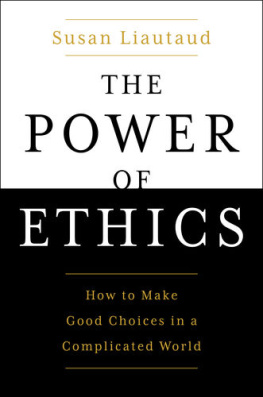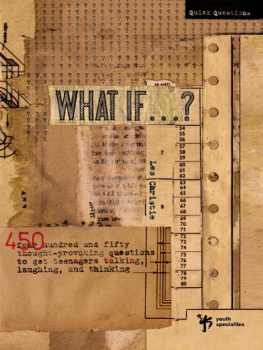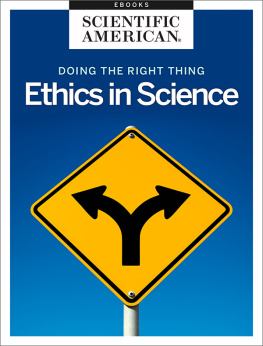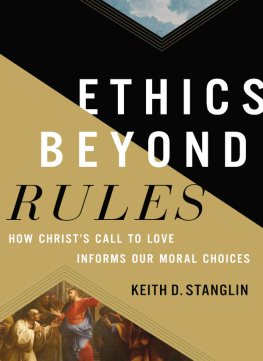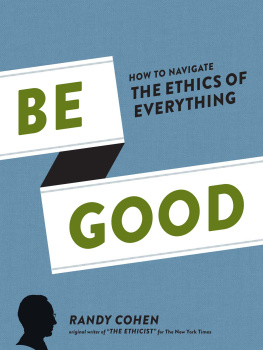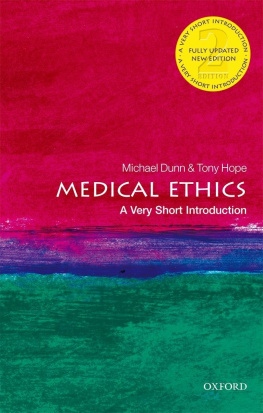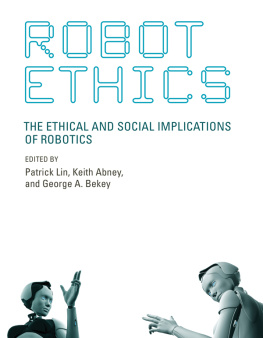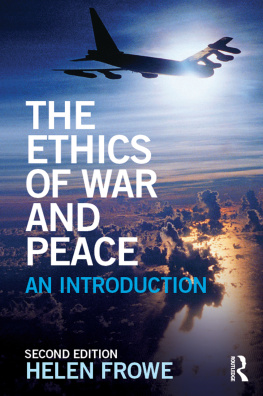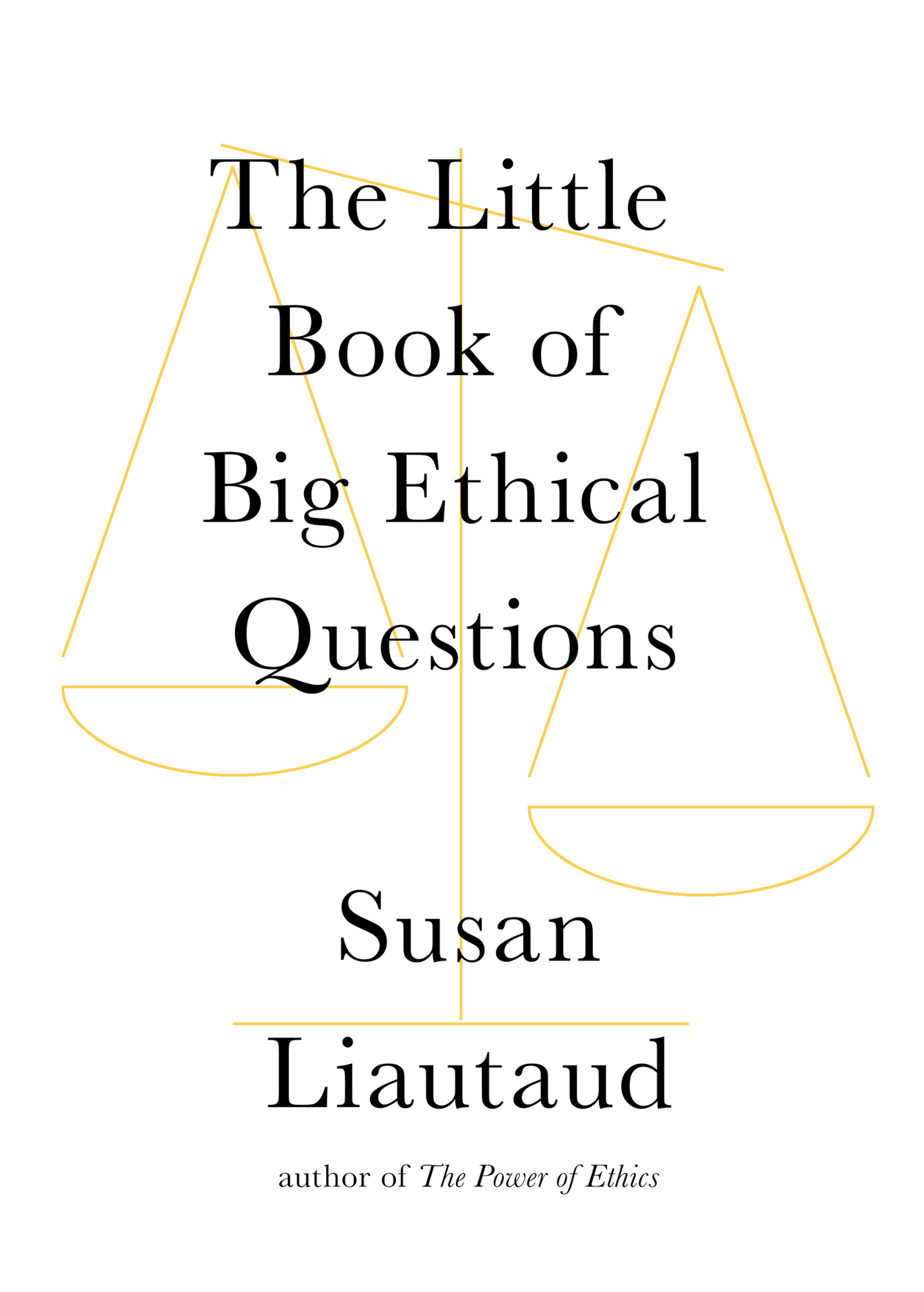Contents
Guide
The Little Book of Big Ethical Questions
Susan Liautaud
Author of The Power of Ethics
To Luca, Olivia, Parker, Alexa, Cristo, and Bernard: This is for you.
And for all of you who try hard to make ethical choices and engage in thoughtful conversation: my deepest admiration and hope that this book will support you and give you the courage to create your best stories.
Introduction: Ethics for Everyone
I was at a casual outdoor dinner with family and friends when someone pointed to the Impossible Burger on the menu. We all realized that despite seeing it advertised everywhere, we had no idea what was in it (soy and potatoes, with a plant-based molecule called heme for taste, created by Stanford University biochemist and Impossible Foods founder Patrick O. Brown), the true health benefits (good for a low-cholesterol or weight loss diet?), the cost (about the same as the beef burger on this menu), or environmental impact (all positive or unexpected negatives?).
How often do we find ourselves assessing the ethical stakes of day-to-day questions, from health to the environment to the economyfrequently without the information we need?
As we caught up on life and the news, and shared a taste of the Impossible Burger and some good wine, our discussion wandered from whether we were comfortable buying from a company with a track record of treating its employees poorly to the Netflix film about the college cheating scandalOperation Varsity Bluesto one friends employer now requiring Covid-19 vaccinations to return to the office then back to the intensely personal questions about aging parents and a siblings partners secrets. The conversation was spirited and fun yet thoughtful and great learning.
We confront choices every day involving ethical challenges that we dont know enough aboutchoices that affect our health, families and friends, work, technology, and our impact on the world. Sometimes were alone in grappling with a question. Often these dilemmas lead to conversations with others.
The Little Book of Big Ethical Questions will guide you when youre on your own, as well as spur conversations in the company of others. Scenario by scenario the book will show you (and whomever youre talking to) how to consider your decisions even when you are confused, lack information, or feel intimidated by a complicated or cutting-edge tech issue. You dont need to be an expert: in fact, thats the point. I dont need to understand how an internal combustion engine works to know that I dont want a twelve-year-old obtaining a drivers license. I dont have to be conversant with code to worry about the potential mental health and addictive consequences of social media.
Some of the questions in the pages that follow are personal, involving family, friends, health, spirituality, emotions, or ambitions. Can we be friends with someone whose political views diverge strongly from our own? Should you take away the car keys from an elderly parent? Do you tell your best friend that their spouse is having an affair? Others are workplace dilemmaschallenges with colleagues and bosses, career choices. Should employers be able to consider a candidates social media posts when recruiting? Should unconscious bias training be required annually? Still others relate to clarifying our opinions about the news and the world around us. Should voting be mandatory? Should we hire robots to care for the elderly? And then there are those occasions when were called on to offer adviceconsidering our own views, while helping others to make the decisions they feel are best for them. The bottom line is ethics touch every aspect of our lives and our relationships. In one way or another, every decision we make matters.
My goal in this book is to democratize ethics: to make ethics accessible to people from all backgrounds and all walks of life; to help you experience how much power you have to make a difference in your own life and in the world around you.
The Questions
The pages that follow set out more than seventy questions to share and debate with friends, family, and colleaguesover dinner, on a Zoom call, while waiting for a train or a meeting to start, during a workout, on a walkor to ponder on your own. All look to strengthen your connection with others, including those whose views differ from your own. All spur us to refine our understanding of ourselves.
Each question is paired with an exploration that includes practical points, guidance about how to prioritize what matters most, and hopeful paths forward while steering clear of blame, shame, fear, and guilt. Although organized by topic, the questions can be read in any order. The learning and insights I try to tease out in each question apply to many of the others.
Some of the questions require deeper thought. Others model ethics on the flydecisions made quickly when you dont have much time, or dont need more information.
My hope is that, question by question, you will pick up themes and tips that will guide you with respect to any dilemma you face in your life or see on the news. You will also consider different perspectives on the issues explored that will help you shape how you view, and engage with, the world.
Some questions may seem deceptively simple at first glance. The explorations are designed to challenge the instinctive knee-jerk answer that skips over critical nuance and consequence.
I dont claim to have all the answers. In fact, often there isnt one right answer. I invite you to be my ethics sparring partner. Together well grapple with the issues and discover the best answers and reasoning for you. The questions in the book give us permission to errwhile holding ourselves and others to a higher standard.
A Few Conversation Guidelines
- Dont look at these as yes or no questions. Look instead for the opportunities and risks of a decision.
- Start with facts. There is no such thing as alternative factswith ethics or anything else.
- Watch for assumptions such as best guesses, gut instinct, relying on unverified social media posts, or confusing gossip with reliable data.
- Consider your decision from the perspective of the person most adversely affected by it. What would it be like to be them? Then imagine that person is you.
- Keep an open mind. Ethical solutions can lurk in unexpected places. And we all have conscious and unconscious bias.
- Eliminate the word perfect from your vocabulary. Surprisingly, striving for perfection can be a driver of unethical behavior and lead to toxic blaming, shaming, and guilt. We all err from time to time. My hand goes up first.
Sometimes we think that in grappling with ethical questions, our good character is enough. Its not: ethics happen when character meets situations. Whatever our character may be, were only as ethical as our last decision.
So as you turn the pages of The Little Book of Big Ethical Questions, enjoy. Ponder. Share. Listen. Debate. Challenge. Trust and test yourself, with your friends and family, as well as in chance encounters. One conundrum at a time.
Could you be friends with someone whose political views differ from your own?

